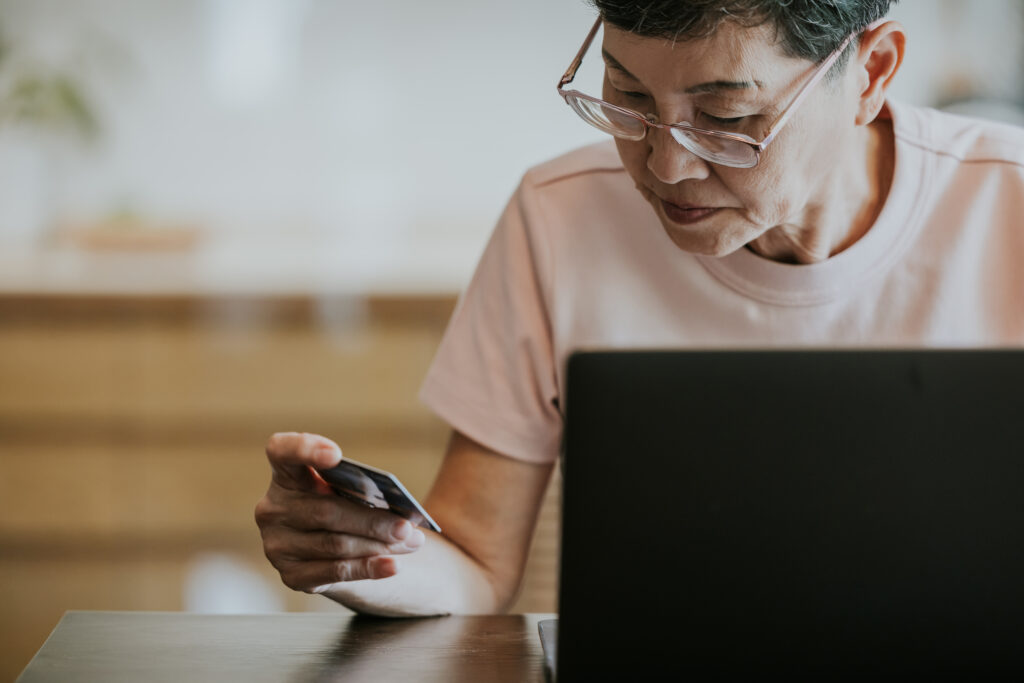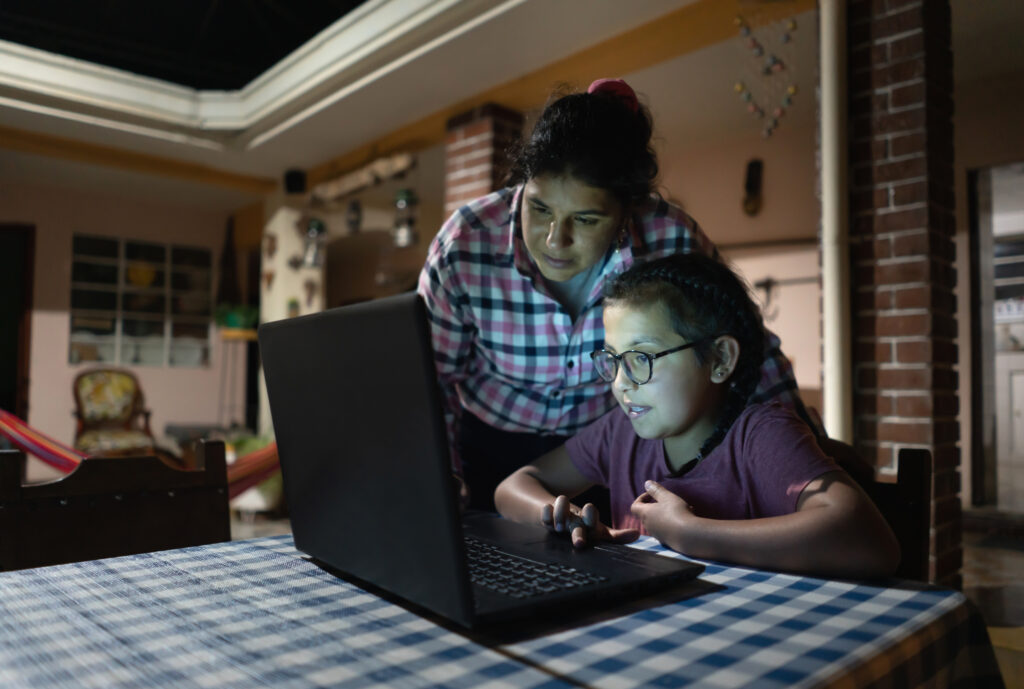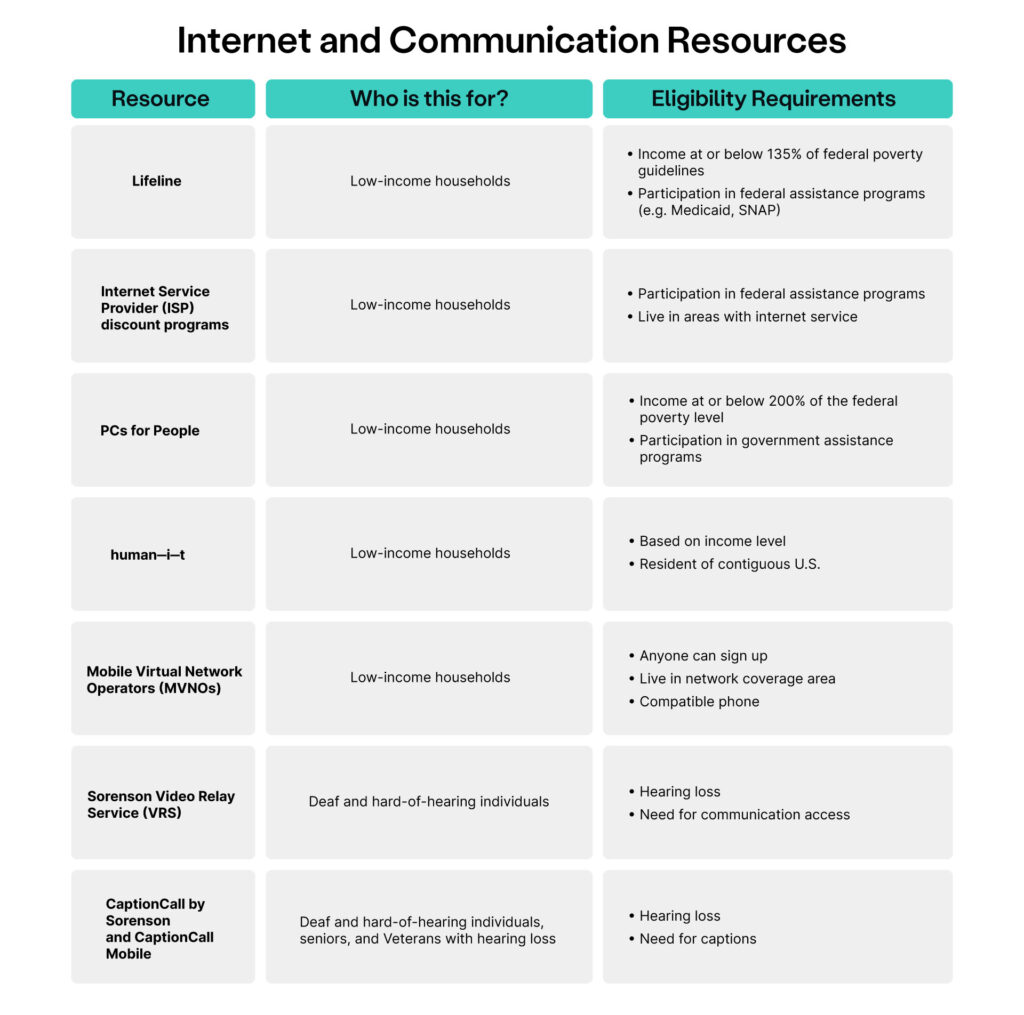Affordable Internet Services and Connectivity Solutions as Alternatives to the Affordable Connectivity Program Benefit

Why affordable internet services are so important
The Affordable Connectivity Program (ACP) expired June 1, 2024, leaving 23 million households without access to affordable internet services. So, we’ll point you to some alternative options for affordable home internet and mobile data plans plus federally funded services for people with hearing loss.
The federally funded Affordable Connectivity Program began in 2021, but after more than two years had run through its $14 billion in funding. It provided up to $30 monthly discounts for low-income households and up to $75 monthly discounts for people living on tribal lands, helping low-income households, seniors, and people with disabilities (including Veterans) access home internet.
An FCC survey showed that 68% of ACP recipients had little internet access before receiving ACP. Most recipients used their ACP internet service for healthcare appointments, and nearly half used it for school and work. 77% said losing their ACP service would force them to switch their internet plans or drop internet access altogether.
Supporting connection is central to Sorenson’s mission. The company has always provided its personal products for the Deaf and hard-of-hearing communities — many of whom are low-income households, seniors, and Veterans — at no cost to ensure money isn’t a barrier to getting the services they need.

For many of us, daily life revolves around being online: work, school, managing finances, telehealth/medical appointments, and connecting with others. We maintain ties with family and friends through internet access. When we can’t see loved ones in person, we can satisfy the need for social interaction through video calls, email, and social media, thus reducing loneliness and social isolation.
Post COVID, many people have continued to work and learn remotely, so affordable home internet is a necessity, not a luxury.
With ACP’s end, there are other affordable options for connectivity, both for internet access and cell phone plans.
Programs and discounts for affordable internet service
People who lost their ACP service can start by calling their internet company to ask about low-cost programs. The FCC advises former ACP recipients explain how they will use their internet service. For example, will a low-income household with children homeschool their children? Will children have online homework? Does one or both parents work remotely? Will the internet connect to more than one device? This can help determine which low-cost plan is the best fit for the household.
The list below provides a few affordable broadband and internet services options. To check affordable internet services in your area, visit the FCC website and search your home address.

Lifeline: This FCC program gives low-income households up to $9.25 per month to pay for broadband and internet. Eligibility depends on income and whether household members receive federal assistance. Lifeline also supports wireless and home phone services.
Wing: Wing is an MVNO wireless phone carrier that provides broadband access for people living in rural areas in addition to monthly mobile phone plans.
PCs for People: This nonprofit provides affordable refurbished computers and internet services to low-income households and charities. You can still access low-cost internet through the mobile hotspot program if it does not cover your area.
human-i-t: A nonprofit that offers low-cost computers and affordable internet services for low-income households.
Many internet service providers have their own assistance programs for low-income households seeking low-cost internet access:
- Xfinity
- AT&T
- Cox
- Spectrum
- Optimum
- Mediacom
- Verizon
- Internet First
There are eligibility requirements to qualify for these programs that may vary by provider. In many cases, you need to show proof of enrollment in a government assistance program for low-income households.
Seniors can inquire about discount internet plans through these service providers:
- Optimum’s Altice Advantage program offers $14.99 monthly internet service for qualifying seniors.
- AT&T Access Program gives discounts for seniors on Supplemental Security Income (SSI) and public assistance. This program also benefits Veterans.
- Xfinity Internet Essentials is a program for individuals receiving SSI. Plans start at $9.95 monthly.
To qualify for senior discounts on internet, you may need to show you receive Social Security Income. Some programs may have additional eligibility requirements.
An alternative for wi-fi is a Mobile Virtual Network Operator (MVNO), which often provides cheaper cell phone plans by borrowing the wireless networks of large carriers (AT&T, Verizon, T-Mobile). Mint Mobile and Wing are examples of more than a hundred MVNOs available in the U.S.
Sorenson no-cost connectivity solutions
Sorenson offers no-cost communication services for people who are hard-of-hearing or Deaf through Video Relay Service and CaptionCall.
CaptionCall
CaptionCall is a federally funded caption phone service, so there’s no cost to users with a hearing loss who need captions to use the phone. Live agents or speech recognition technology create captions in real time. Features include scrolling call captions, captioned voicemail, call transcripts, adjustable audio settings, and captioned 911 calls.
A significant benefit of CaptionCall is you don’t need home internet to sign up. If you have landline phone service, mobile data service, or home internet, the CaptionCall team will find an option to connect you with caption phone service.
CaptionCall home service includes complimentary caption phone, delivery, installation, training, and ongoing support.
The CaptionCall Mobile app provides the same no-cost service on the go. Some features include captions for both sides of conversations, voicemail captioning, transcripts, contact importing, and adjustable text size and color.
- Sign up for CaptionCall for home or call Customer Care at (877) 557-2227
Video Relay Services (VRS)
Deaf and hard-of-hearing (DHH) individuals who communicate using American Sign Language (ASL) can use VRS at no cost for interpreted phone calls. Sorenson also provides videophones and software to access the service at no cost.
- Register for Sorenson VRS or call Customer Care at (866) 756-6729 to request service.
DHH individuals who need VRS but do not have the necessary equipment can sign up for Sorenson’s Video Relay CARE (Communication Access and Relay Equipment) Package program. We’ll customize an equipment package to fit individual needs.
DeafBlind individuals who need additional equipment for equitable communication access can request specialized equipment at no cost through the national iCanConnect program to use in combination with Sorenson services or as standalone connection solutions.
Do you know someone who can benefit from these services? Share this information with your friends, family, and colleagues.

